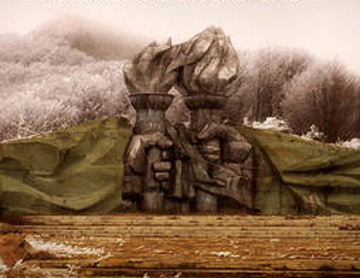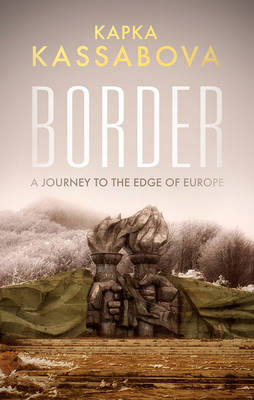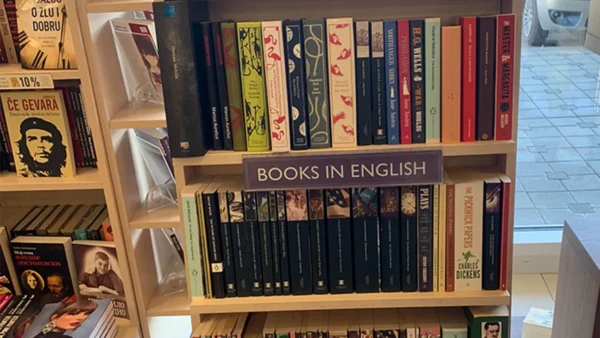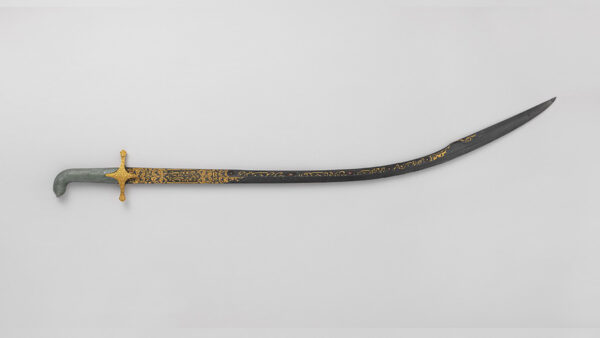Have you ever read a book that seemed to contain all the right ingredients but somehow failed to live up to your expectations? That’s how I felt after reading Border by Kapka Kassabova.
Have you ever read a book that seemed to contain all the right ingredients but somehow failed to live up to your expectations? That’s how I felt after reading Border by Kapka Kassabova.
It’s about borders, an issue I’m very interested in and have written about in the past. It’s about the Balkans, an area that has fascinated me since I spent a few months travelling through the region back in 2015. It’s written by someone who’s actually from the Balkans and has a personal connection to the border area she writes about. And it’s got literary credentials, too, having won the Saltire Society Scottish Book of the Year and been shortlisted for the Baillie Gifford Prize for Non-Fiction, as well as garnering plenty of admiring reviews.
And, in some ways, it did deliver. Much of the writing in Border is beautiful and poignant, and it achieves the difficult trick of clearly evoking a place and time while also weaving in plenty of historical and cultural context. Kassabova spoke to a lot of people with interesting stories of lives lived near the Greek/Turkish/Bulgarian border that has at various times divided east from west, communist from capitalist, the EU from non-EU. She tells the stories of people who have crossed for different reasons, as well as those whose job it has been to prevent people from crossing.
As I said, all the right ingredients. I should have loved the book, and yet, to be honest, I didn’t. I think part of the problem, for me, was the fragmented narrative. This is not a particularly long book, and yet it has something like 60 chapters, some no longer than a page or two. You meet a lot of interesting people, but as soon as you start to get interested in one story, you find yourself moving on to hear about someone else, whose story may or may not be connected to the one you were just reading. It’s a bit like being at a party where you get snippets of conversation with a multitude of people, but wish you could have stuck with a smaller group and talked in more depth.
There’s also no compelling narrative to hold the whole thing together. The author’s own journey plays a role, but it’s not a very interesting one. She goes around the region talking to a bunch of people, connecting it all to her own memories of childhood trips to this border zone and her family’s later move to New Zealand. And while I understand that leaving home is always hard, it doesn’t seem convincing to me to connect moving to a “nice big house in Dunedin where my father taught at the university” with the struggles of people who were driven out of their homes and lost everything.
Still, there were some snippets of this book that will stay with me. For example:
- The ethnic cleansing of Turks in Bulgaria, and the man who wasn’t a Turk but still hanged himself out of disgust at what his neighbours were doing.
- The fact that, while redrawing a map of the Balkans with other representatives of the Great Powers, Disraeli couldn’t even hold the map the right way up.
- The links between older and more recent migration: “The corridors used in the Cold War remain the same. Only the direction of travel has changed.”
- The image of Hermes, the “trickster god of borderlands, passage, communication, and miscommunication” who also conveys you to the Underworld and wears his shoes backwards.
- The way in which the suffering of the mountain people of Strandja taught them to support each other because “They seem to know what others don’t: kindness is the one thing that matters in the end.”
- The story of the Turkish shepherd who was jailed for espionage because he waved and shouted a greeting at another shepherd on the Bulgarian side of the border. Did he regret it, or did he feel that “he had done the right thing, the thing you must do in order to be young before being old”?
- The insight that “oral knowledge is more enduring than the written word”.
For all these things and more, I’m grateful that I read Border. But I can’t shake the feeling that, if it had a clearer structure and more developed arguments, this could have been a book I truly loved.





There are 2 comments
Too bad it wasn’t all that you had hoped, such potential! At least it wasn’t a complete waste of time though.
Hi Stefanie,
Ah, it goes like that sometimes 🙂 Definitely not a waste of time, though—there were lots of things I liked about the book. Maybe my expectations were just too high.